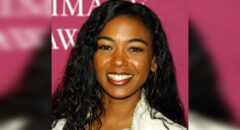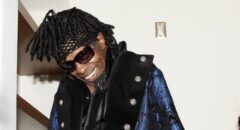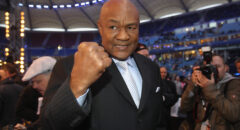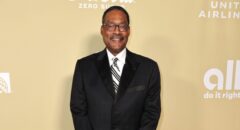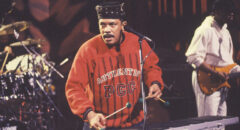
Mark Ross, known professionally as rapper Brother Marquis of iconic hip-hop group 2 Live Crew, has passed away at 58, the group announced, according to TMZ, who first reported the news.
The group shared he “went to the upper room” in an Instagram post. A cause of death has not yet been made known.
2 Live Crew’s legendary frontman and leader, Uncle Luke (aka Luther Campbell) paid tribute to Brother Marquis on social media, writing on X, “My Condolence goes out to the Family of Brother Marquis and so many of his Fans from around the World after learning his passing.
“We took on so many fights for the culture (and) made Great music together something I would never forget. We had recently got back together to take on another fight to get back our catalog that was stolen from us. We will continue that fight in his name for his Family.”
He added, “The Brother Marquis that I know would want us to celebrate his life (and) that’s exactly what I’m gonna do. R.I.P My Brother.”
Born April 4, 1966, in Rochester, New York, Ross spent his youth growing up in Los Angeles before moving to Miami. While still in junior high school, he crossed paths with rapper Rodney-O, and the two started the Caution Crew, releasing a handful of 12″ singles like “Westside Storie” and “Rhythm Rock.”
He joined the 2 Live Crew in 1986. The group, comprised of Brother Marquis, Uncle Luke, Fresh Kid Ice and Mr. Mixx, released five albums from 1986 to 1991 and was known for its controversial lyrics.
In 1989, the group released their third album, As Nasty as They Wanna Be, which also became the group’s most successful album. A large part of its success was due to the single “Me So Horny”, which was popular locally with heavy radio rotation on Miami’s WPOW-Power 96 FM.
“Me So Horny” was not only a commercial hit but also changed the legal landscape.

The American Family Association (AFA) did not think the presence of a “Parental Advisory” sticker was enough to adequately warn listeners of what was inside the case.[citation needed] Jack Thompson, a lawyer affiliated with the AFA, met with Florida Governor Bob Martinez and convinced him to look into the album to see if it met the legal classification of obscenity. In 1990, action was taken at the local level and Nick Navarro, Broward County Sheriff, received a ruling from County Circuit Court judge Mel Grossman that probable cause for obscenity violations existed.In response, Luther Campbell maintained that people should focus on issues relating to hunger and poverty rather than on the lyrical content of their music.
In 1990, a federal court declared the album “As Nasty As They Wanna Be” history’s first legally obscene album and made it illegal for retailers in the southern Florida area to sell the album, a ruling that was overturned two years later.
The clean version of the album, “As Clean as They Wanna Be,” included the track “Pretty Woman,” which took the group to the U.S. Supreme Court in a case often cited in copyright law.
Though 2 Live Crew did not obtain the license to use the tune for Roy Orbison’s 1964 ballad “Oh, Pretty Woman,” they went ahead and recorded and released a parody.
After the song’s publisher sued the group for copyright infringement, the case made its way through the courts. In the 1994 case Campbell v. Acuff-Rose Music, Inc., the Supreme Court sided with 2 Live Crew, ruling “Pretty Woman” qualified as fair use.
The controversial hip-hop group’s fourth album, “Banned in the U.S.A.,” became the first rap album to feature the black-and-white “parental advisory explicit content” label.
After dropping a live album and Sports Weekend (As Nasty as They Wanna Be Pt. II), 2 Live Crew began to split up, and Brother Marquis moved to Georgia, where he tried his hand at standup comedy and new music in the duo 2 Nasty. In 1995, he linked up with Fresh Kid Ice (he died in 2017) and DJ Mr. Mixx to record “Hoochie Mama” for the soundtrack to the film Friday. The following year, they formally reunited under the 2 Live Crew moniker to release their seventh studio album, Shake a Lil’ Somethin’, in 1996 and, after Mixx’s departure, The Real One in 1998.



